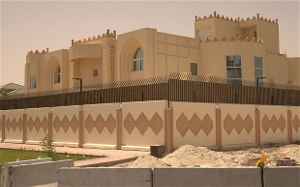When the US and the Afghan government were trying to get some peace talks started with the Taliban, it was quickly decided that the Taliban needed an office. It didn’t take long, once that was decided, for the first office to open in the Qatari city of Doha.

It wasn’t accidental, or surprising. Qatar has historically been very open to allowing controversial foreign factions to run offices out of their cities, with groups like Hamas and the Muslim Brotherhood finding a welcome in Qatar that simply doesn’t exist elsewhere.
This is also a big part of the foreign blockade against Qatar, as more restrictive nations like Saudi Arabia, Bahrain, and the Egyptian junta don’t take kindly to Qatar playing host to their (often banned) opposition parties, and treat their permission to operate as tantamount to Qatari “support.” With openness to dissenting opinions also pervasive in Qatari media, but literally nowhere else in the Middle East, it’s turned them into something of a pariah.
And yet, this hosting has proven extremely valuable for the region over the years, as having a physical Hamas office, or a place that’s got Taliban bureaucrats working in it, means that diplomatic channels that effectively don’t exist can be temporarily opened at a moment’s notice.
Hamas is a perfect example, as Israel’s various invasions of the Gaza Strip almost always boil down to them being sick of invading but the international community wanting some sort of indirect negotiation. Talking to Hamas means going through an office in Qatar, or before that, in Mubarak-era Egypt.
The other GCC nations, however, don’t like the reminder that these groups exist at all, which is a big part of why they’re ganging up on Qatar, who simply refuses to go along to get along.





They are not “more restrictive.”
They are oppressive, killing opposition in the streets. The Saudis even executed one of their own princesses in a street intersection at noon for marrying without permission.
In the heart of that darkness, any glimmer of light must be extinguished, however feeble or compromised, for fear of what will be revealed.